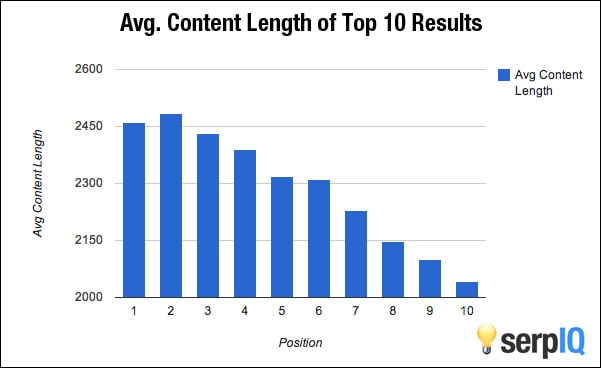Last Updated on
As a web designer, the most common thing I hear among my clients and potential clients is, “I want to rank on Google. How long does SEO take?”
And this is understandable! I don’t know anybody who doesn’t want to rank on Google.
But there is no quick and easy fix to getting on page one of Google.
What Happens If You Don’t Use SEO
I have been studying SEO for the past couple of years, and when I first started up Dana Nicole Designs, I was heavily focused on social media marketing, and decided to do a little experiment: I used no SEO techniques for the first six months (and relied only on social media to drive traffic to my site).
This sounds like a crazy thing to do, but I wanted to illustrate how important it is to implement an SEO strategy.
Take a look at how poorly my website traffic was from search engine acquisition:

I started up this website in October 2016 and as you can see from above, traffic acquisition from search engines in March was a total of 14 people for that ENTIRE month.
It doesn’t take an SEO specialist to know that 14 visitors per month is not good!
These stats represent a brand new blog with no SEO strategy.
In May 2017, I decided to start by incorporating a manageable SEO strategy.
By manageable, I mean that I wasn’t going to hire an agency to do it nor was I going to spend 100 hours a week on it.
This had to be something I could do on my own between working on client projects.
As you can see, after I started incorporating a little bit of SEO into my blog posts, I started seeing an increase in traffic almost immediately.
But let me say something first: by this time, my site had been around for six months and I had already gotten myself somewhat “established” through getting backlinks and being very active on social media.
If you are going to try and implement a simple SEO strategy on a brand new site, you aren’t going to see as quick results as I saw.
This isn’t meant to discourage you at all. In fact, it should empower you to know that there is no quick and dirty method to SEO, and as long as you put in the work it will pay off!
So what does this mean for you? Well, a couple of things.
One, that SEO does work! And secondly, the longer your site is around for, the more likely you will be able to start ranking for key terms.
How Long Does SEO Take?
Now, after doing tons of research (both through online reading, talking with people and through testing my own site)
I have found SEO takes around six months to start ranking on page one of Google for a specific keyword, so long as you have a proper strategy in place (meaning your content is good, you have some good backlinks etc), and that keyword isn’t already dominated by big players.
This theory is backed up by research performed by Ahrefs.
Neil Patel has written a killer in-depth article explaining what keywords smaller bloggers should try to rank for, because as a new blogger, you should be optimizing your content for long-tail keywords.
When I first started employing an SEO strategy, the oldest posts of mine were the first ones to start ranking and bringing in traffic.
This is a clear indication that it can take months to start ranking for keywords.
The exception to this rule is a post I wrote a few months ago about a really hot topic.
When Mass Planner shut down, I wrote a blog post on it instantly.
Nobody else had covered the topic, and I was given the first-mover advantage. Because nobody else had written much on the topic of Mass Planner shutting down I was able to capitalize on the traffic.
So what exactly does this mean for you? Well, it means that from day one, you need to get going with an SEO strategy, and you need to be patient.
It also means if you incorporate a solid SEO strategy, in one year from now you will see steady traffic coming into your blog from search engines, and once you get established, your blog posts will begin to rank faster (although not instantly).
Why Does It Take So Long To Rank?
Google takes many factors into consideration when deciding where to place you in the search engine results page (SERP).
Age is a factor, but Matt Cutt’s has stated that age doesn’t play a huge role in domain authority.
What does happen when your website is around longer is that you begin to acquire:
- more backlinks
- more content with keywords (if you are blogging properly)
and both of these factors help you rank higher.
Now, there are many other factors that can help you rank higher but these two are generally the two that increases with the age of your domain.
How Long Before You Start Ranking For Your Business Name
Maybe you don’t plan on blogging, or maybe you don’t quite care at this point if your blog shows up in searches. All you care about at this point is ranking for your name.
After your site launches, Google will likely crawl your site within a week or so, but you won’t actually start ranking for your business name for several weeks to a couple months.
There are also other factors influencing how fast you will see your site ranking for its own name.
For instance, if your business name is similar to another business who has been on the web longer than you, then you will essentially be competing with someone else who is going to outrank you until Google gives your site more authority than the other one, and sees your website as more relevant to include in search results.
How You Can Try To Speed Up The Process
Aside from the age of your website, you can do a few things to help speed the process up.
Get Listed In Directories
First, get your website in as many places as possible without being spammy. Set up a Google business account and create a listing, and start adding your link onto all of your social media profiles and share your website link through those profiles.
Adding your business to some directories (such as Yelp, the Yellow Pages, and any other local listings you may come across) is also helpful.
But please keep in mind that adding your website to as many directories as possible is very spammy and Google will penalize you for this. Only add your listing into reputable websites!
Start Link Building
For a longer-term strategy, you can start obtaining healthy backlinks. Backlinks tell Google that your site is good enough to be linked from someone else.
Post Quality Content
A study was conducted and found that the average content length on articles ranking on page one of Google was 2,000+ words.

Keeping a blog that publishes 2,000+ word quality posts frequently is also very important for site rankings, but keep in mind, these posts aren’t going to rank on page one very quickly if your blog was just recently created.
Perform Keyword Research For Each Blog Post
When you are writing your blog posts, perform keyword research to make sure each post targets keywords that are easy to rank for.
If you are pouring hours into writing 2,000+ word blog posts, you don’t want your energy to go wasted because you are targeting keywords that are already dominated on the first page by big sites that you don’t stand a chance competing with!
I wrote an in-depth piece if you would like to learn more about effective keyword research.
Conclusion
Like I said above, it will take several months before you see your blog posts ranking high. The continual update of content lets Google know that your site is updated constantly.
Do you have any search optimization strategy in place? Let me know below!
This article may include affiliate links. As an Amazon Associate I earn from qualifying purchases.

Dana Nicole is an award-winning freelance writer for MarTech/SaaS who was rated one of the best SaaS writers by Software World. She specializes in writing engaging content that ranks high in search engines and has been featured in publications like Semrush, ConvertKit, and Hotjar.
Dana holds a Bachelor’s degree in Business Administration and has over 15 years of experience working alongside national brands in their marketing departments.
When Dana’s not working, you can find her dancing en pointe, cooking up new recipes, and exploring the great outdoors with her two big dogs.
